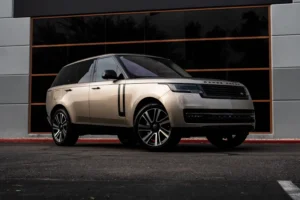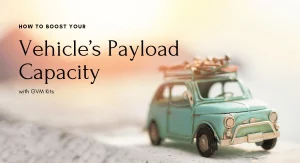A Guide To: Upgrading Your Car
By TOI Staff
June 7, 2023
Update on : June 7, 2023

Should you really buy a new car? Not just new to you – but a brand-new model? It can be difficult to decide whether it’s the right time for a new car, or whether the best option is to go instead for one of the excellent second hand cars on sale instead.
There’s lots of pressure on drivers to change vehicles regularly, from finance agreements that encourage a change every few years to mounting societal and government pressure to opt for a new electric car. But when there are long delays on new models, rising list prices, and a glut of cars up to 20 years old that still function perfectly well, you have to wonder if it’s really necessary to change.
New cars are getting more expensive
Exchange rates and economic situations haven’t helped the rise in the price of new cars, which is almost meteoric for some models. Just take a look at the prices below:
Ford Fiesta ST Line 1.0 100hp
- 2019 £17,415
- 2022 (Jan) £20,770
- 2022 (Nov) £22,530
Nissan Qashqai Visia DIG-T 140
- 2019 £19,595
- 2022 (Jan) £24,555
- 2022 (Nov) £25,770
Volkswagen Golf Life 110hp
- 2019 £22,135 (old model – Golf Match)
- 2022 (Jan) £23,430
- 2022 (Nov) £24,730
New car registrations are still down
This isn’t because people don’t want new cars – it’s simply that there isn’t enough supply to meet everyone’s demand. The UK in particular made half a million fewer cars in 2022 than it did in 2019.
At the start of 2020, you could still get a lot of great cars for little money. But we all remember the impact that the pandemic had – empty showrooms and movement restrictions meant purchasing was put on hold. The ensuing component shortages hit the car industry badly, and manufacturers lost out on hundreds of thousands of sales globally.
The billions invested in new model platforms – the last of the combustion-engine cars, before the next generation, necessitated a switch to electric – weren’t paid back. It’s no wonder manufacturers are trying to claw some of it back now with higher list prices.
Sales shutdowns
The biggest impact for buyers and car dealers from the pandemic was a hold on the sale of cars – and the lack of new car sales impacted the supply of used models. Usually, registration dates in March and September bring a glut of two-to-four-year-old popular models into the showrooms, as people’s leases and finance agreements come to an end.
Those models never materialised during the pandemic, because no new cars were sold to replace them, dealers weren’t able to open and those that could were limited to providing just key workers.
Even three years on that replacement cycle for company fleets and finance sales haven’t fully stabilised – not helped by the sheer number of people who now work full-time from home and have re-evaluated their motoring needs.
There’s no incentive to discount cars, because manufacturers can’t meet demand anyway, and that impacts the price for buyers.
With all these pressures but still a need for affordable transport, the prices of economical, low-tax family cars have gone up, while luxury models, sports cars and those with high emissions have stayed fairly stable.
When should I buy a new car?
Assuming no more unexpected disasters, the later the better. The war in Ukraine has brought further uncertainty to the European market, as have rising energy prices. We’d hold off until September 2023 if possible – possibly March 2024 if you can wait that long.
If you can’t, you might consider trying to find a cheap second-hand car to bridge the gap between the end of your finance agreement and the beginning of your new one.
Read more: A Guide To: Upgrading Your Car















